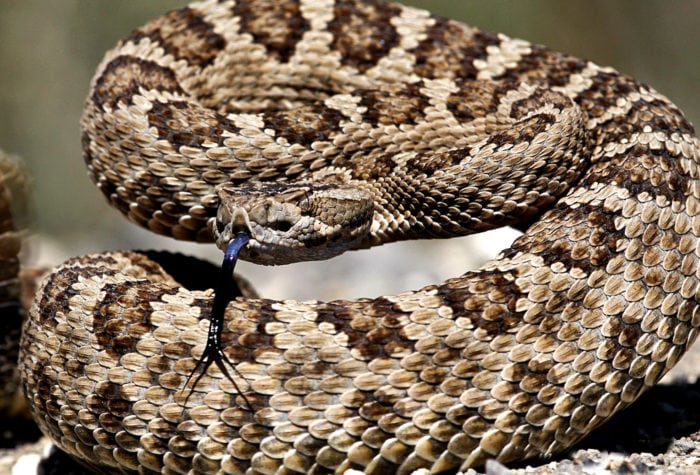Ruby Creek Riparian Planting
Jim Davis Website
| Organizer: Renee Patrick
Dates: October 18-21, 2022 Region: John Day River Basin Difficulty Rating: Level 3: Challenging Maximum Group Size: 15 participants |
About the place
This project takes place on the traditional lands of the Confederated Tribes of Warm Springs (Warm Springs, Wasco, and Northern Paiute) and the Confederated Tribes of the Umatilla Indian Reservation (which consists of the Umatilla, Cayuse, and Walla Walla). This region has been an important place for the Confederated Tribes of Warm Springs since time immemorial. CTWS has several conservation properties along the Middle Fork John Day that they are restoring for fish and wildlife habitat. The area is also part of the traditionally used lands for the Cayuse, who seasonally came to the area for fishing, hunting and gathering.
Over a decade ago, ONDA took legal action to support fish habitat in the Malheur National Forest. We are now in our seventh year of helping the forest to implement a variety of ambitious, multi-year projects restoring key fish habitat on headwater streams.
This trip will include plantings on Ruby Creek, Bear Creek and Butte Creek, three tributaries of the Middle Fork of the John Day River. These streams provide critical habitat for steelhead and Chinook salmon. ONDA volunteers will be responsible for planting willow, dogwood, and other species.
As the trees planted by volunteers mature, they will help shade and cool streams to support native fish species and provide an important food source for deer, elk and beaver.
About the stewardship work
You will work with ONDA and Malheur National Forest staff to conduct two days of riparian planting along Ruby Creek, Bear Creek and Butte Creek.
We typically head to the work site at 8 a.m. and stop work by 4 p.m. in order to leave time in the afternoon to clean-up, relax, and cook a well-deserved dinner. No previous planting experience is needed to attend this trip. ONDA and Forest Service staff will provide all instruction and necessary tools to do the job. All that is required is a love of the high desert, a big smile and a willingness to learn.
Trip timeline
- Tuesday, October 18 (5-7 p.m.): Volunteers should plan to arrive in the evening with enough time to set up, meet others at camp, and spend some time talking about the week ahead.
- Wednesday, October 19: Our first of two work days. We will meet with Forest Service staff at 8 a.m. After a brief safety talk and a discussion of the restoration efforts, we will begin planting. Plan to be away from camp from about 8 a.m. to 4 p.m.
- Thursday, October 20: Our second day of work planting along Camp Creek. Plan to be away from camp from 8 a.m. to 4 p.m.
- Friday, October 21: Our relaxation and travel day. After breakfast and coffee, volunteers can pack up and head home.
Camp
We will be car camping at the Middle Fork Campground. There are vault toilets, but no potable water at this quiet campground tucked in the trees. Please bring all the water you will need for drinking, cooking and cleaning. ONDA will bring some group camping supplies such as tables, chairs, wash bins for dishes, and some extra potable water. Since we will be car camping you will be able to have all the amenities you can fit in your car! Further details describing camp and driving directions will be provided to participants in the information e-mail three weeks before the trip.
Difficulty
Participants will be bending down, carrying sticks and metal stakes, as well as digging holes into rocky soils. Everyone can find a task that works best for them and work at a comfortable pace with frequent breaks.
Participant responsibilities
Participants are responsible for their own food, camping gear, and water as well as transportation to and from the trip. Sturdy off-trail ankle-high boots are required for this trip. Waders and/or rain boots are not required but can be nice for working in and near the creek. Volunteers should be prepared to be away from camp all day each of the work days. A more complete packing list will be sent out three weeks before the trip starts.
Gear provided
ONDA will provide tools for the work, work gloves, and sunscreen. We will bring some group camping equipment (shade tent, tables for cooking, wash bins for kitchen cleanup, a privy), and expert leadership.
Registration
An ONDA registration application and medical form are required for this trip. Check the box next to each trip you would like to attend.
Apply Now
You will receive a confirmation email within 2 weeks of submitting your form. The confirmation email will provide information regarding which trips you are on the “participant list” for, and which trips are full, and therefore you have been placed on the “wait list.”
Six weeks before the start of the trip, the trip leader will send out an RSVP to make sure everyone is still able to participate. Based on RSVPs, open spaces will be backfilled with people from the waitlist.
Three weeks before the trip start date, registered and confirmed participants will receive driving instructions, maps, and additional information in an email sent by the trip leader
If you have any questions in the meantime, please don’t hesitate to contact the trip leader.
Your Trip Leader
This trip will be led by Renee Patrick. If you have questions, you can contact her at renee@onda.org.
Meet ReneeRestoring Desert Ecosystems
ONDA works with partners, communities and the public to improve habitat quality, create healthy ecosystems, sustain clean water and support biodiversity in the high desert’s most ecologically important areas. What […]
Read More